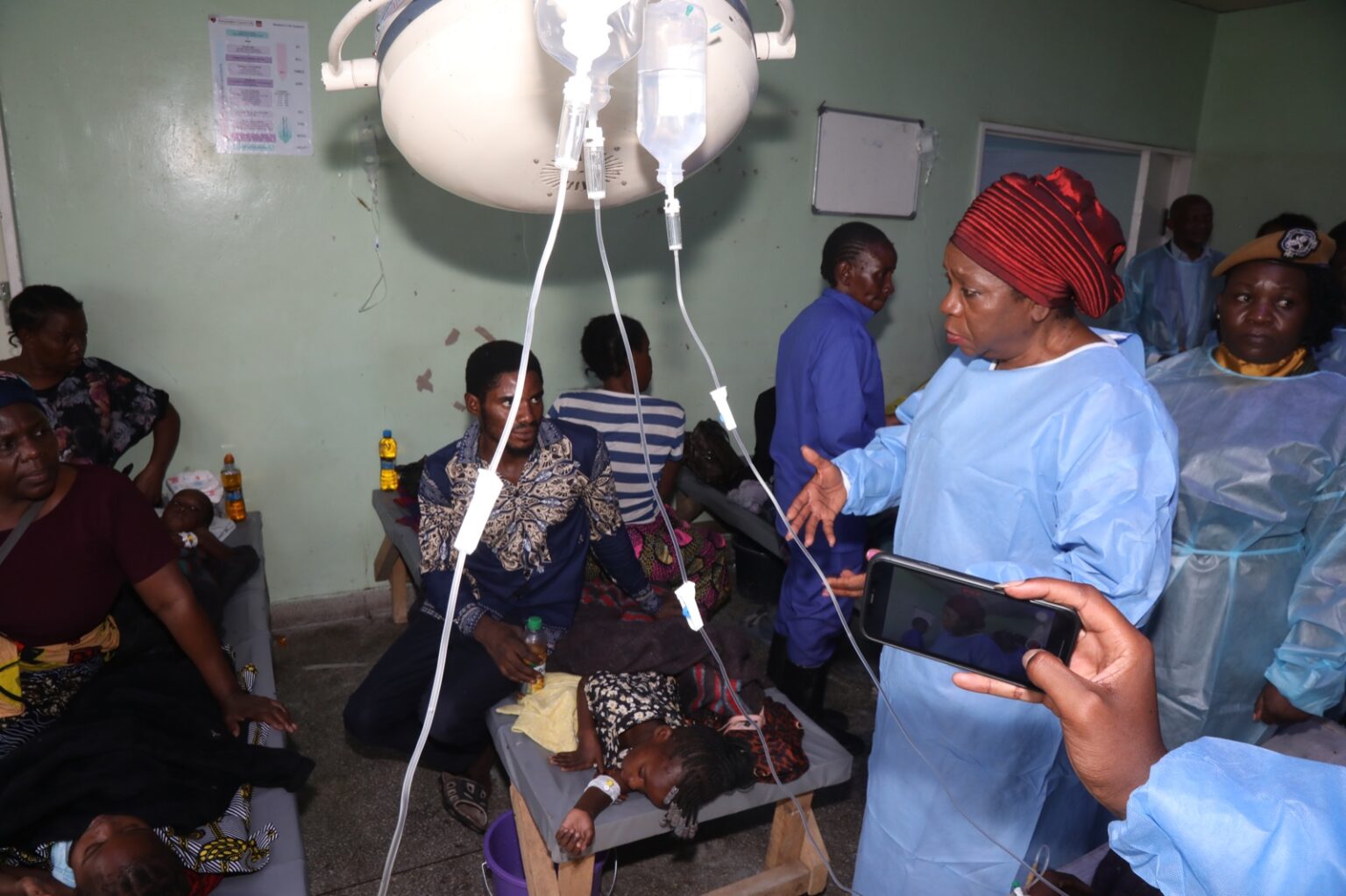- Cholera fatalities in Zambia have now surpassed 150 cases since the onset of the latest outbreak in October 2022.
- Authorities are also prohibiting the sale of food along urban streets as Zambia cases hit past 4,000.
- A cholera resurgence in October has spread across the country, with reported cases spanning 16 districts across six of Zambia’s 10 provinces.
Authorities in Zambia have postponed the start of the 2024 academic year to January 29th, underscoring the escalating death toll attributed to the Cholera outbreak in the country. This drastic decision follows the alarming statistics of Cholera fatalities, which have now surpassed 150 cases since the onset of the latest outbreak in October 2022.
This rescheduling of school reopening reflects a prudent response to the risks imposed by the growing public health crisis, underlining the gravity of the situation gripping the southern African country and the necessity to prioritize the population’s well-being.
“All public and private early childhood, primary and secondary schools remain closed for a further three weeks after the official opening date of January 8, 2024,” Douglas Syakalima, the Minister of Higher Education of Zambia, told the media on Thursday.
The move came on the same day Zambia reported 23 deaths and over 340 cholera cases. Currently, the metro area around Lusaka city, home to over three million people, is confronted with an elevated susceptibility to infection, given the persistent rise in cases.
Zambia turns Lusaka stadium into hospital to treat cholera cases
To alleviate mounting strain on existing healthcare facilities, Zambia’s Health Minister, Sylvia Masebo, has announced the conversion of the 60,000-seater National Heroes Stadium in Lusaka into a dedicated treatment centre for cholera patients.
This strategic measure aims to enhance the capacity to manage the burgeoning caseload and underscores the growing need for agile responses to the roiling health crisis.
Earlier, officials in Zambia implemented a prohibition on selling food along urban streets to mitigate the spread of cholera, which has already affected over 4,000 people.
“We continue sensitizing our citizens not to buy food from unsafe locations and to observe the highest level of hygiene so that together we can curb the spread of cholera,” Masebo notified the public.
Specifically, in the capital city of Lusaka, the Ministry of Health is reporting a notable surge, registering a 71.2 per cent increase in reported cases and a staggering 175 per cent uptick in fatalities within just one week this year.
This statistical upswing underscores the pressing need for stringent public health measures and heightened vigilance in the face of an escalating health crisis across Zambia.
Read also: Lobito Corridor: a US-backed mining catalyst in DRC and Zambia
Securing cholera vaccines from WHO
This week, the Zambia National Broadcasting Corporation reported that Roma Chilengi, the Director-General of the Zambia National Public Health Institute, said talks between the government and the World Health Organization (WHO) are underway to secure cholera vaccines.
Roma Chilengi added that the government’s long-term goal is to establish local vaccine production capabilities.
Zambia’s Ministry of Health says the nation has been grappling with a cholera outbreak for the last 12 months. However, the situation has witnessed a resurgence in October, leading to an exacerbation of the disease, with reported cases spanning 16 districts across six of the country’s 10 provinces.
This underscores the need for concerted efforts to curb the spread. According to the WHO, Cholera is characterized as an “extremely virulent disease,” primarily transmitted through the consumption of contaminated food or water. It manifests as severe acute watery diarrhoea, with the potential to turn fatal within hours if left untreated.
WHO underscores that a substantial portion of individuals infected with V. cholerae may remain asymptomatic despite the continued presence of the bacteria in their faeces for one to 10 days post-infection. This shedding into the environment poses a risk of potential transmission to others.
The majority of those who exhibit symptoms experience mild or moderate manifestations. The onset of symptoms typically occurs within 12 hours to five days post-infection.
However, a minority of patients may develop acute watery diarrhoea accompanied by severe dehydration, and the progression of this severe form of the disease can result in fatality if not promptly addressed.
Key facts about cholera according to the WHO
- Cholera is an acute diarrhoeal disease that can kill within hours if left untreated.
- Cholera is a disease of poverty affecting people with inadequate access to safe water and basic sanitation.
- Conflict, unplanned urbanization and climate change all increase the risk of cholera.
- Researchers have estimated that each year, there are 1.3 to 4.0 million cases of cholera and 21,000 to 143,000 deaths worldwide due to cholera.
- Most infected patients have no or mild symptoms and can be successfully treated with oral rehydration.
- Severe cases need rapid treatment with intravenous fluids and antibiotics.
- Providing safe water, basic sanitation, and hygiene practices is critical to prevent and control cholera transmission and other waterborne diseases.
- Oral cholera vaccines should be used in conjunction with improvements in water and sanitation to control cholera outbreaks and for prevention in areas known to be high risk for cholera.
- A global strategy on cholera control, Ending cholera: a global roadmap to 2030, with a target to reduce cholera deaths by 90 per cent, was launched in 2017.
